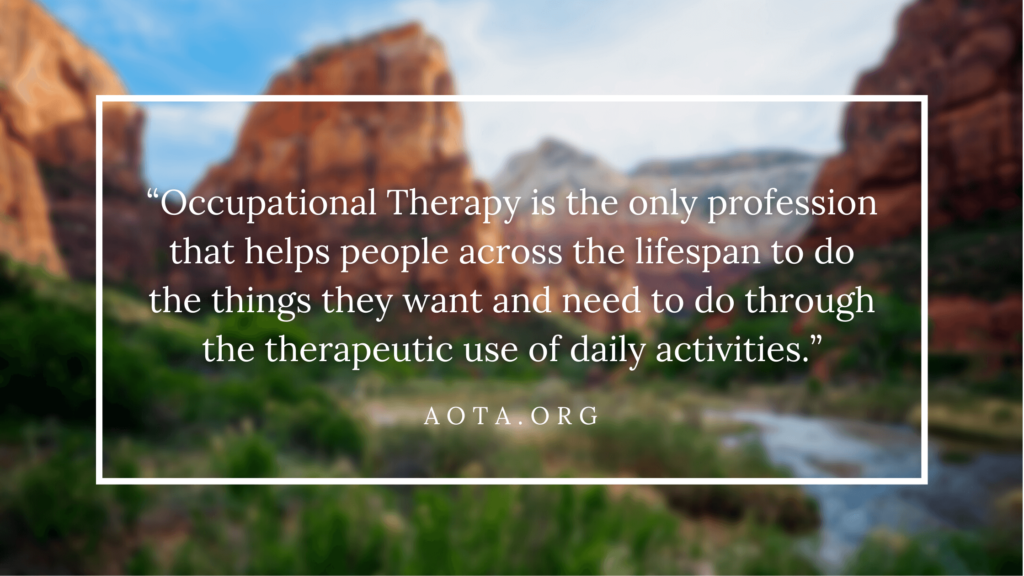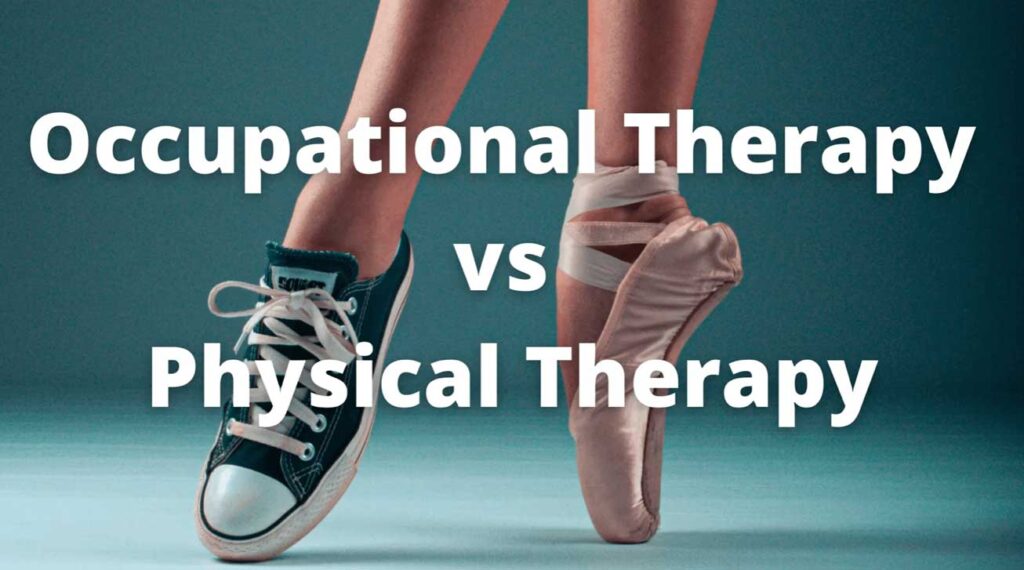According to the Census Bureau, healthcare is still the largest business in the U.S. Currently, there are over 22 million healthcare workers and the number of employees has actually grown in recent years.
Healthcare is also one of the worst industries in the U.S. Employees are often overworked, understaffed, and unappreciated by their employers and patients. These industries are notorious for poor morale and being unethical at times.
What’s the solution?
Occupational Therapy. I’m not talking about OT in the traditional sense, but as a way to improve healthcare by helping others make life more meaningful.
Working as an OT, I’ve discovered that managing conflict and building peace is at the heart of what I do.
In this article, I’ll discuss what it takes to become a professional in the field of peace-building and conflict management, and the role of OT in this practice.
See my other related post on OT and Conflict Resolution.
Why OTs qualify to work in Conflict Management and Peace-building
Conflict management/peace-building is the practice of improving interpersonal or organizational relationships through a set of skills or techniques to increase collaboration and change.
Individuals working in conflict management may have many different titles and backgrounds. To work in this field, most people need some kind of background in managing conflict, but many jobs don’t require a degree or certification.
Here are a few examples of job titles and background requirements to work in this field.
Job titles in Peace-building/conflict management
- Organizational development consultant
- Peace building consultant
- Arbitrator
- Negotiation specialist
- Conflict mediator
- Dispute resolution consultant
- Mediation program manager
Typical backgrounds in Peace-building/conflict management
- Psychology
- Human Resources
- Conflict mediation
- Certificate or degree in conflict resolution/peace-building
The difference between Occupational Therapy and Psychology?

Psychology is usually the term we think of when we think of resolving relationship conflict. What role does occupational therapy have in this field?
First, let’s discuss the difference between OT and psychology.
Asking this question is like asking what’s the difference between PT and OT. It’s not an easy question to answer because OT is more holistic and multifaceted.
In many ways, OT is rooted in multiple therapy disciplines. There are OTs whose jobs overlap with physical therapists, speech therapists, and behavioral psychologists.
I’ve seen OTs working in outpatient settings similar to physical therapists, OTs who do swallow evals and test for cognition like speech therapists, and OTs who use cognitive behavioral techniques for patients in mental health.
The very nature of occupational therapy is being client centered and holistic, meaning it focuses on all aspects of who we are. This may include our values, beliefs, spirituality, physical functions, and physical structures.
Like psychology, occupational therapists conduct evaluations and listen to clients to know their needs and challenges. OTs also provide assessments, treatments, and goals to address these needs and measure progress.
In mental health, OTs provide interventions that address judgement, attention, memory, perception, thought, mental functions, and emotions.
According to the OTPF, OT also addresses “Contentment with one’s health, self-esteem, sense of belonging, security, and opportunities for self-determination, meaning, [and] role”
This may include assisting others with compensatory strategies or environmental modifications to overcome depression or treatment plans to increase social participation.
In many ways, OT is similar to psychology, because it was founded by psychologists. It uses similar approaches with the ultimate goal to meet the client’s individual needs to make life more purposeful.
Why OT should be in conflict management and peace-building

According to AOTA, “Occupational Therapy is the only profession that helps people across the lifespan to do the things they want and need to do through the therapeutic use of daily activities.”
OT is also concerned with the well being of others, social participation, self-esteem, sense of belonging, safety, and opportunities for self-determination.
If this is the mission of OT, how does OT help people whose lives have lost meaning due to depression, anxiety, emotional pain, trauma, or fear from relationship conflict?
This may include conflict with families, partners, friends, coworkers, and organizational conflict.
How does OT help people who are dealing with their inner conflict of depression or self doubt?
How does OT help to resolve workplace conflict and provide interventions that lead to a more meaningful career?
Occupational Therapy is client-centered
Occupational therapy has an important role in building peace, because of its unique client-centered approach. OTs don’t just treat a diagnosis; they treat people.
This client-centered approach is exactly why OT is already in the field of improving relationships. When we see others more holistically we understand others better.
When we see others as people first, we are then able to progress them to more meaningful occupations.
Occupational Therapy seeks to make life more meaningful
As discussed earlier, OT seeks to improve
- The well being of others
- Social Participation
- Self Esteem
- Sense of belonging
- Meaningful occupations
- Physical, mental and emotional health
Many of the challenges people face stem from relationships with others. Without meaningful and harmonious relationships, it can be challenging for people to improve their quality of life.
The role of occupational therapy is to help others adapt to life’s challenges to make life more meaningful. When people feel that they belong and have meaningful relationships, their livelihood increases.
This increases their self-esteem, self worth, and can improve their physical, emotional, and mental health.
How to work as an OT in conflict management and peacebuilding?
- Read my other post on conflict resolution
- Take a peace-building course (Subscribe to my newsletter)
- Market your practice
Conclusion
OTs are more than qualified to develop the skills to manage conflict and build peace in the home, with their clients, and within organizations.
Making life more meaningful by improving relationships is at the core of occupational therapy. It’s the reason that meaningful activities matter.
If you’re at all interested in this topic be sure to check out my other post – An OT approach to conflict resolution. And be sure to subscribe below to learn more.
And have a nice day.

David is the lead editor of OT Focus. He has been practicing as an Occupational Therapist since 2013. He specializes in acute care, hand therapy, and ergonomics.




